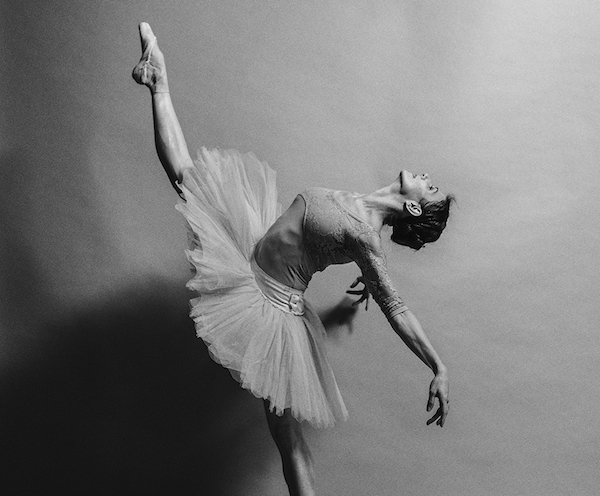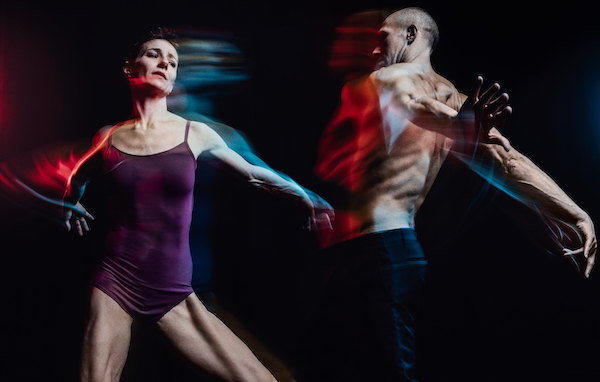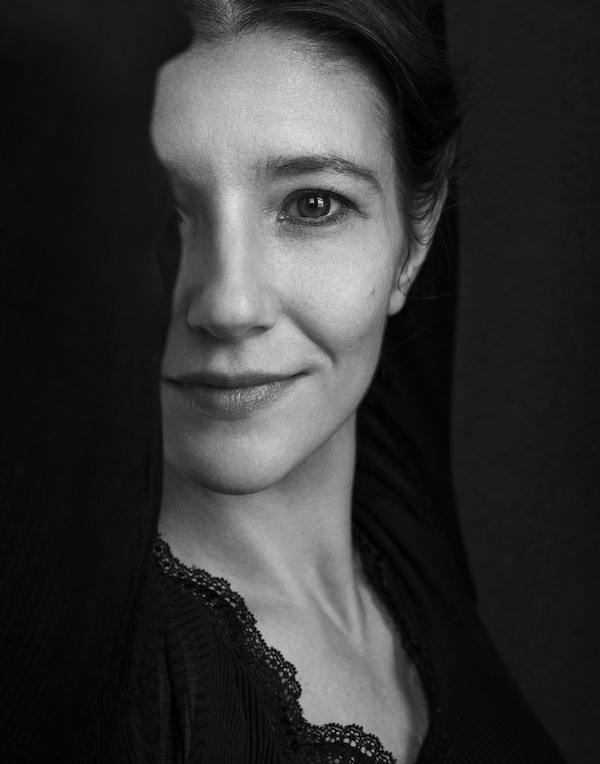On a cold, proper “winter blues†afternoon in London, I phoned Alina Cojocaru to chat about her upcoming show at Sadler’s Wells. She was putting on the finishing touches for the programme and we spoke about her ideas. By the time we had finished our chat, she had truly brightened up my day. Focused on collaborations and featuring short films which look at her life and career, the evening seems less like a ballet gala and more like an extremely personal project, and if anyone has the artistic sensibility to pull off something like that, it’s Alina. I can’t wait to see how it all comes together:
TBB: You have organised lots of galas before, on behalf of Hospices of Hope, and the Dream Project in Japan, for instance. How did this project come about and how does it compare to your previous ones?
Alina Cojocaru: Yes, I have had that experience. However, this is a different project, as I am taking care of all aspects of producing a programme: from music rights to choosing the repertory, to fundraising and finances. It’s a lot to do, as it requires opening and registering a company, building a team of technical producers, accountants, etc. So I am discovering these different aspects as I go along. The other interesting side to this programme at Sadler’s Wells is being able to showcase new works, and that adds a lot more. But what has been really great is getting to meet people, to build relationships and get some business knowledge, and all other aspects of our work.
TBB: What messages do you want to get across and what was the driving force behind the repertory?
AC: This programme took a lot of thinking. I’ve seen similar events and there is always the question: what do I want to say or what can I bring that is unique and different, so it can be appealing? It comes together by a process of elimination and by questioning myself and the choices I make, and I took it piece by piece, slowly building it. And the main reason behind it? As I mentioned, I really like collaborating with people and especially with choreographers. I was very interested in doing something new and having a mix, together with a piece I had not performed here that I really love (Marguerite & Armand), so this is how the repertory slowly came about. One of the pieces we went along with is Tim Rushton’s Reminiscence. He had started this work on Johan and me around 12 years ago, and we created part of it and somehow our lives and journeys took us in different directions and we had never quite finished it. We felt like this would be a beautiful thing to bring to life. Plus, it’s a chance to have Johan on stage with me. It seems like the right piece and the right place.
I also wanted variety and to try something new. To interact with someone I had never worked with, and see how it would play out. This led me to Brazilian choreographer Juliano Nunes. He has created a piece for us, Journey, a trio in which he is also dancing, so I am really excited: it is different when you have the choreographer on stage with you.
TBB: You recently debuted in Johan’s new production of Romeo and Juliet (in Verona). How has your partnership changed at this stage in your careers?
AC: It is a time in Johan’s career where he is involved in many different projects and I am still dancing and also involved in different projects. It is beautiful for me to see how complementary these are. We work in the same art form, just from slightly different aspects. I think there is so much that I am learning from Johan and his experience, and from our conversations about what we are doing. I love it that we are able to say what we think, and share honest advice and opinions, especially when you are talking with someone who knows you so well. And I am very much looking forward to meeting him again on stage after all this time apart. One of the other pieces in the programme is his Les Lutins, which is a wonderful piece.
TBB: We heard the programme will include a couple of short films by Kim Brandstrup. Can you tell us about them?
AC: Kim had a dream to make a film that he eventually called Faces, which premiered at the Linbury Theatre when it reopened. I loved it and found very interesting, with its combination of dancing and the more intimate close-ups of dancers, and I thought it worked.
TBB: It certainly worked for us! It is great to see the emotion on the dancers faces, beyond what they can convey through their movement…
AC:Â …yes I think it works really well, and it adds something different. Here, we are going to focus on the sections where I appear, since that film is a bit too long. The other film we are editing at the moment – and which I really wanted to do, as it is very special for me – is on the theme of meetings, of celebrating connections. It brought me back to how ballet started for me, all the way back in Kiev, working with the teachers that I had, which I was very lucky to have. The idea is to celebrate them, so we went to Kiev to film and we were there for a couple of days. Some of my teachers are still working, and for me it was a very emotional journey: from the moment I entered the school, little to nothing has changed. It was quite surprising really. So that is what I am currently working on, choosing the right moments and making them interesting for people who don’t know much about me or my teachers.
TBB: How did your former teachers react to the whole experience?
AC: Well, I think they were thinking they were going to be talking about me and that it would be like a documentary when, in fact, we were interested in having them on camera, their faces, their emotions just being there. But of course we filmed everything. We filmed them talking, we filmed them meeting us. We have some amazing material and hopefully some day it can become something longer, but for now we are trying to extract moments which can complement Faces.
TBB: The final ballet in the evening is Ashton’s Marguerite and Armand which you are performing alongside ENB’s Francesco Gabriele Frola. Why did you choose this particular piece?
AC: I think M&A has everything we are looking for in this programme. It is one act. It is a story ballet, and it is something I have never performed in London. I love Ashton’s work. My first years in ballet as a professional were spent dancing his pieces, and this is one I didn’t get to perform. But most of all, I just love the story. It has a life and I simply had to perform it here, so why wait!
TBB: You describe all the work that has gone into putting this programme together, and you have had to balance that with your work as a Lead Principal with ENB and a Guest Principal Dancer in Hamburg. How?
AC: To be honest, the key word here is “timeâ€. In the sense of the desire to experience as much as possible, and to try to explore beyond what you have and what makes you feel comfortable. Somehow for me, being comfortable feels like I am not doing enough, that I am not growing, and I guess this might come from our training as dancers. Always trying something new, pushing yourself, a new class or a different teacher.
In our careers, all these encounters and collaborations are what make us grow. The same in life. So it is the right time to do more and pursue these opportunities. I have great support at home with Johan. At the same time, there is not enough “time†in a day, and that is a challenge. To be able to push in rehearsals and class, and be able to have the time to explore possibilities to work with choreographers, and decide who and why and when. And also with the projects we have in Japan, and being a mum. There are so many aspects to the day, daily life, that as everyone else, we just wish we had more time to make it happen and to enjoy it.
I guess being the dancers that we are, constantly trying to improve ourselves daily, the push to “do the best we can” inevitably becomes part of our lives. So it ends up being in the blood: to be the best mum I can be, to be the best wife I can be, etc. I don’t think it is a bad thing, and in a way this drive has helped me in my journey ahead. But to answer your question, I would also regret it if IÂ didn’t do it. Considering everything that goes into it, I’d rather live with that knowledge and the result of that journey, instead of living with the regret of not having tried.
Catch Alina Cojocaru at Sadler’s Wells from 20 to 23 February, 2020. For tickets and further information, visit the Sadler’s Wells website.
Comments are closed.



